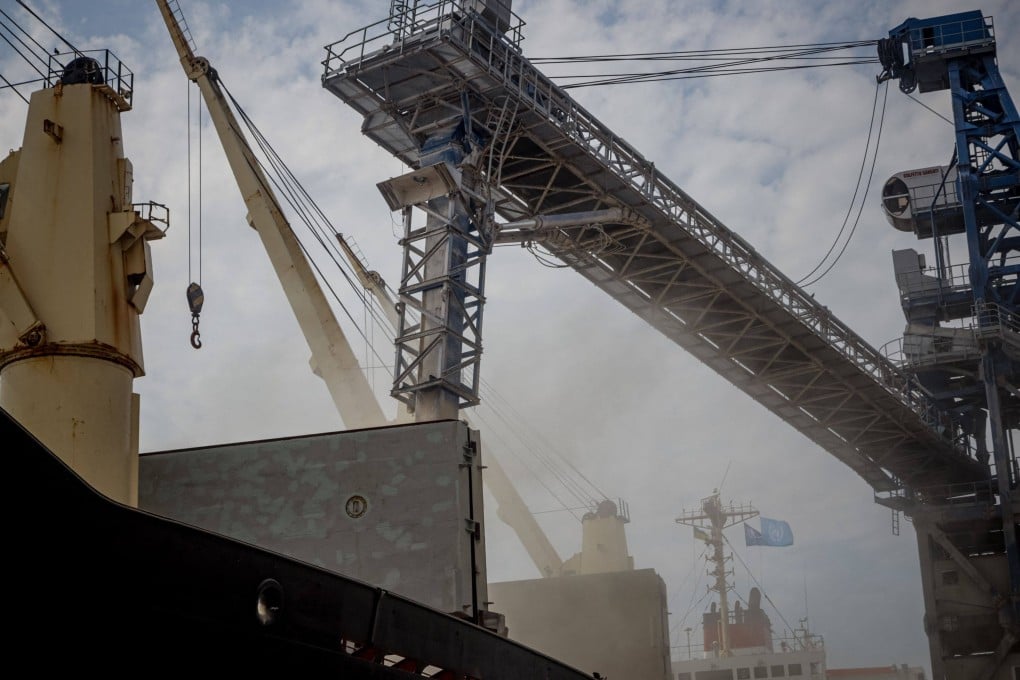Ukraine war: fees for insuring Black Sea grain ships have become a ‘limiting factor’ in warding off food crisis
- One shipowner said he paid a 35 per cent to 40 per cent premium to insure four grain ships departing from the Black Sea
- The World Food Programme said getting Black Sea Ports open is the single most important thing to do right now to help the world’s hungry

High premiums for banks and insurance companies have become a major constraint in financing and underwriting the perilous journey of ships from the Black Sea bringing much needed grain to the world. One shipowner told This Week in Asia that is now a “limiting factor” in averting a global hunger crisis.
Russia’s naval blockade of Ukrainian ports in the Black Sea trapped more than 20 million tonnes of grains from leaving the country, sending food prices soaring and causing food shortages and hunger in parts of the world.
“Insurance has been very difficult. That has been the limiting factor … because a lot of the big banks, [insurance] underwriters are still hesitant,” said Gaurav Srivastava, chairman of Harvest Commodities SA.

Harvest Commodities SA, an international distributor of agricultural products, had four ships departing from the Black Sea last week – two from Ukrainian ports and another two from Russian ports in a joint venture with Indonesia’s Arsari Group.